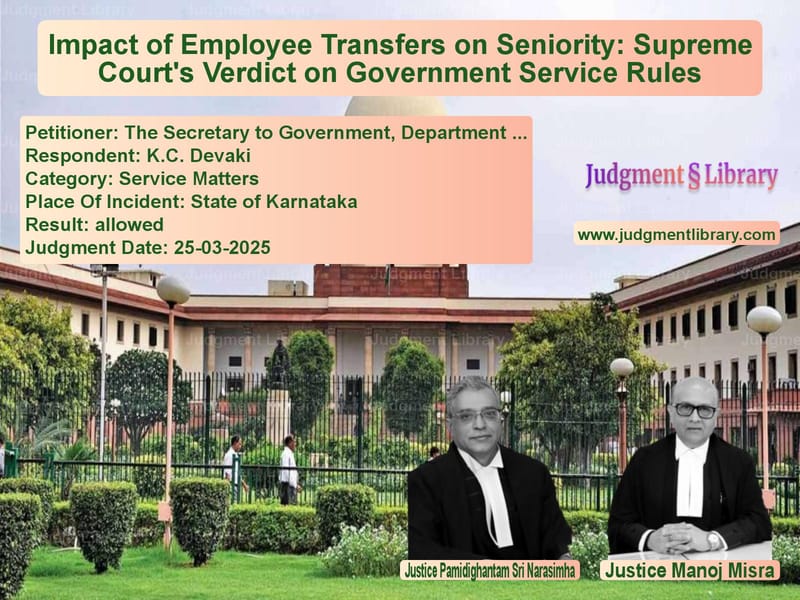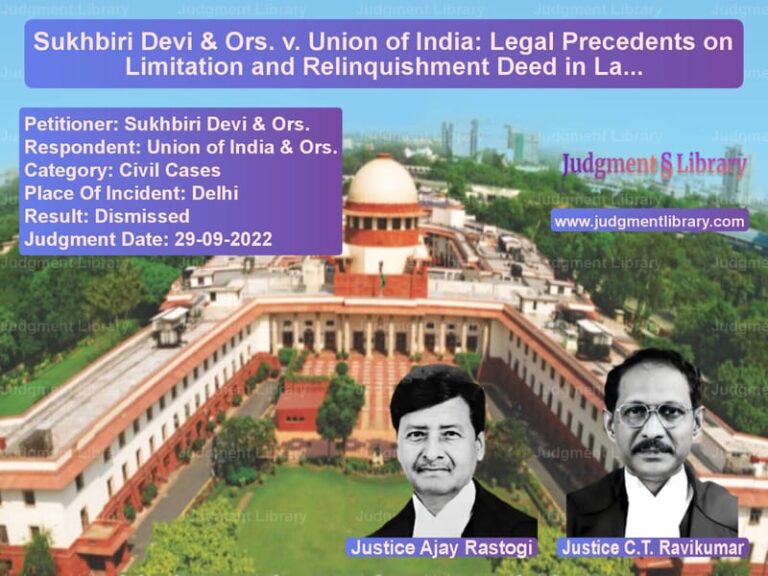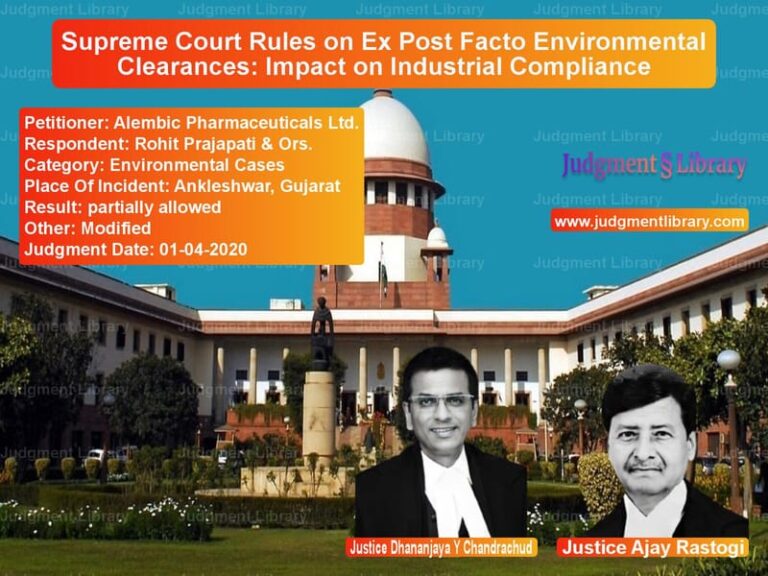Impact of Employee Transfers on Seniority: Supreme Court’s Verdict on Government Service Rules
In an important judgment, the Supreme Court of India examined the issue of whether the transfer or reappointment of a government employee affects their seniority and, if so, whether such seniority is dependent on the nature of the transfer—whether in public interest or at the employee’s request. This ruling holds significance for government employees and administrators alike, as it clarifies how seniority should be determined when employees shift roles within the civil services.
The case in question involved a dispute over seniority in government employment, where the respondent, K.C. Devaki, contested the final seniority list published in 2007. The Supreme Court, after analyzing the Karnataka Civil Services (General Recruitment) Rules, 1977, and Karnataka Government Servants (Seniority) Rules, 1957, ruled that the respondent was not entitled to claim seniority from her initial appointment in 1979 but only from her transfer date in 1989.
Background of the Case
The case arose from the employment history of K.C. Devaki, who was appointed as a Staff Nurse in the Department of Indian System of Medicine and Homeopathy in 1979. Due to medical complications, she requested a cadre change to a clerical post as a First Division Assistant. The Karnataka government initially approved her transfer on medical grounds, requiring her to accept a position below the last candidate in the new cadre. This was documented in an official government order dated April 19, 1989.
However, in 2007, when the Karnataka government published the final seniority list, Devaki challenged it before the Karnataka Administrative Tribunal, asserting that her seniority should be counted from 1979 rather than 1989. The Tribunal ruled in her favor, relying on an earlier High Court judgment in K. Seetharamulu’s case. The Karnataka government appealed the decision, bringing the matter before the Supreme Court.
Arguments Presented
Petitioner’s Arguments (Government of Karnataka):
- The government argued that Devaki’s transfer was granted at her request and was not made in public interest. Therefore, under Rule 6 of the 1957 Seniority Rules, her seniority should be counted only from 1989, when she assumed the new post.
- They cited various precedents, emphasizing that a government employee transferred at their own request cannot claim the same seniority as employees who originally joined that cadre through direct recruitment.
- They contended that the Tribunal’s decision to grant seniority from 1979 was incorrect, as it failed to distinguish between transfers made in public interest and those made at the employee’s request.
Respondent’s Arguments (K.C. Devaki):
- Devaki’s counsel argued that her transfer was necessitated due to health issues and that the government had approved the request following a medical board’s recommendation.
- They claimed that since her cadre change was due to an unavoidable medical condition, it should be treated as a transfer in public interest.
- They relied on the High Court’s decision in K. Seetharamulu’s case, where a similar transfer was treated as being in public interest.
Supreme Court’s Analysis and Observations
The Supreme Court examined Rule 16 of the Karnataka Civil Services (General Recruitment) Rules, 1977, which allows for cadre changes in exceptional circumstances. The Court noted that while Devaki’s health condition justified a cadre change, her acceptance of lower seniority in 1989 indicated that her transfer was not an administrative necessity but rather a personal choice.
The Court stated: “Transfers in public interest are meant to serve administrative efficiency, whereas transfers at an employee’s request accommodate personal needs. The distinction must be upheld to ensure fairness in seniority determination.”
The Court further elaborated: “When an employee voluntarily consents to a cadre change and agrees to be placed below the last-ranked person in the new cadre, they cannot later claim seniority based on their original appointment date.”
Key Findings and Ruling
- The Court ruled that transfers initiated by an employee, even if medically necessary, do not constitute transfers in public interest under Rule 6 of the 1957 Seniority Rules.
- Seniority must be counted from the date of transfer, not the original appointment date, when an employee moves to a new cadre voluntarily.
- The High Court’s reliance on K. Seetharamulu’s case was misplaced, as the facts of that case were materially different.
- The Karnataka government was justified in fixing Devaki’s seniority from 1989.
Conclusion
This judgment clarifies a key principle in government service law: Employees who seek cadre changes cannot claim retrospective seniority unless the transfer is made in public interest. The ruling safeguards the interests of existing employees while ensuring that cadre changes remain a fair administrative practice.
Petitioner Name: The Secretary to Government, Department of Health & Family Welfare & Anr..Respondent Name: K.C. Devaki.Judgment By: Justice Pamidighantam Sri Narasimha, Justice Manoj Misra.Place Of Incident: State of Karnataka.Judgment Date: 25-03-2025.
Don’t miss out on the full details! Download the complete judgment in PDF format below and gain valuable insights instantly!
Download Judgment: the-secretary-to-gov-vs-k.c.-devaki-supreme-court-of-india-judgment-dated-25-03-2025.pdf
Directly Download Judgment: Directly download this Judgment
See all petitions in Employment Disputes
See all petitions in Transfers Cases
See all petitions in Recruitment Policies
See all petitions in Public Sector Employees
See all petitions in Judgment by P.S. Narasimha
See all petitions in Judgment by Manoj Misra
See all petitions in allowed
See all petitions in supreme court of India judgments March 2025
See all petitions in 2025 judgments
See all posts in Service Matters Category
See all allowed petitions in Service Matters Category
See all Dismissed petitions in Service Matters Category
See all partially allowed petitions in Service Matters Category







